Introduction
The path to integrate biofuels into aviation presents intricate challenges, primarily due to the stringent performance requirements of contemporary aircraft engines and infrastructure. These challenges are further amplified by the need for sustainable feedstocks, advanced processing technologies, and rigorous quality control. Bio-based aromatics have been a game-changer, expanding the potential applications of Sustainable Aviation Fuel (SAF).
This development has significantly boosted the proportion of SAF in aviation fuel mixes, even allowing flights to be powered solely by SAF, as demonstrated by leading airlines such as United Airlines and Virgin Atlantic. Although synthetic aviation fuels and technologies like hydrogen offer promising prospects for a carbon-neutral future, SAF's compatibility with existing infrastructure and aircraft makes it the most viable solution for the aviation sector. However, the industry needs to overcome considerable barriers, including the high cost and limited availability of feedstocks.
Considering the aviation industry's contribution to global carbon emissions, approximately 2% and rising, underscores the need for immediate action. Despite these hurdles, the potential of SAF is indisputable and plays a vital role in the aviation industry's goal of achieving carbon neutrality by 2050. In this context, Unifuel.tech's Flexiforming technology offers a promising solution.
This technology enables operators to manage their decarbonization pace. Flexiforming can be implemented in an idle hydrotreater or reformer, reducing both capital expenditure and carbon intensity. Unifuel.tech assures a response within 24 hours for inquiries regarding the optimal application of Flexiforming based on the feeds, target products, and existing facilities.
Technical Challenges of Biofuels for Aviation
The path to integrate biofuels into aviation presents intricate challenges, primarily due to the stringent performance requirements of contemporary aircraft engines and infrastructure. These challenges are further amplified by the need for sustainable feedstocks, advanced processing technologies, and rigorous quality control. Bio-based aromatics have been a game-changer, expanding the potential applications of Sustainable Aviation Fuel (SAF).
This development has significantly boosted the proportion of SAF in aviation fuel mixes, even allowing flights to be powered solely by SAF, as demonstrated by leading airlines such as United Airlines and Virgin Atlantic. Although synthetic aviation fuels and technologies like hydrogen offer promising prospects for a carbon-neutral future, Saf's compatibility with existing infrastructure and aircraft makes it the most viable solution for the aviation sector. However, the industry needs to overcome considerable barriers, including the high cost and limited availability of feedstocks.
Considering the aviation industry's contribution to global carbon emissions, approximately 2% and rising, underscores the need for immediate action. Despite these hurdles, the potential of SAF is indisputable and plays a vital role in the aviation industry's goal of achieving carbon neutrality by 2050. In this context, Unifuel.tech's Flexiforming technology offers a promising solution.
This technology enables operators to manage their decarbonization pace. Flexiforming can be implemented in an idle hydrotreater or reformer, reducing both capital expenditure and carbon intensity. Unifuel.tech assures a response within 24 hours for inquiries regarding the optimal application of Flexiforming based on the feeds, target products, and existing facilities.
Sustainability Challenges of Biofuels for Aviation
Biofuels have emerged as a promising solution to the pressing need for the aviation industry to reduce its environmental footprint. Their sustainability, however, hinges on several factors that require careful scrutiny.
It is imperative that biofuel production does not impinge on food production, foster deforestation, or trigger other harmful environmental effects. The aviation industry's reliance on sustainable aviation fuels (SAFs) stems from the lack of viable alternatives such as electrification or green hydrogen in the foreseeable future, especially for long-distance flights.
SAFs are derived from a wide variety of feedstocks, including biomass, waste products, natural oils, fats, other carbon sources, and hydrogen. The growing global adoption of SAFs is a testament to the diversity of these feedstocks, particularly in regions like Europe, the UK, and the US.
However, global production constraints suggest that demand may soon outstrip supply, raising concerns about cost and sustainability. Biofuel production should not only depend on sustainable feedstock but should also incorporate robust certification schemes and a lifecycle assessment approach to measure environmental impact.
An example of this is a newly developed process for producing bio-based aromatics that allows for larger volumes of SAFs to be used in aircraft, as tested by airlines such as United Airlines and Emirates Airline. Innovations like this are critical as they provide a realistic pathway to decarbonize global aviation without requiring extensive alterations to aircraft fleets, airports, and fueling infrastructure.
The sustainability of biofuels also requires consideration of potential competition for feedstocks and the effects on less affluent nations. For instance, a shift towards regenerative farming practices could decrease the volume of biomass available for biofuel production, thereby increasing competition for biofuels.
Countries like Australia, with their considerable biofuel feedstock production and emerging hydrogen economy, can play a significant role in this context. With the aviation industry responsible for approximately 2% of global carbon dioxide emissions, the necessity for new fuels like Safe is paramount. However, the actual impact will be determined by a variety of factors, including the successful expansion of SAF production, a challenge that remains daunting. Introducing technologies such as Unifuel.tech's Flexiforming can be a game-changer in this scenario. Flexiforming allows operators to control their decarbonization pace and can be implemented in an idle hydrotreater or reformer, thereby reducing both capital expenditure and carbon intensity. Unifuel. Tech provides prompt responses to queries, typically within 24 hours, and requests information about feeds, target products, and existing facilities to determine the best application for Flexiforming. Contact information for the company can be located on their website.
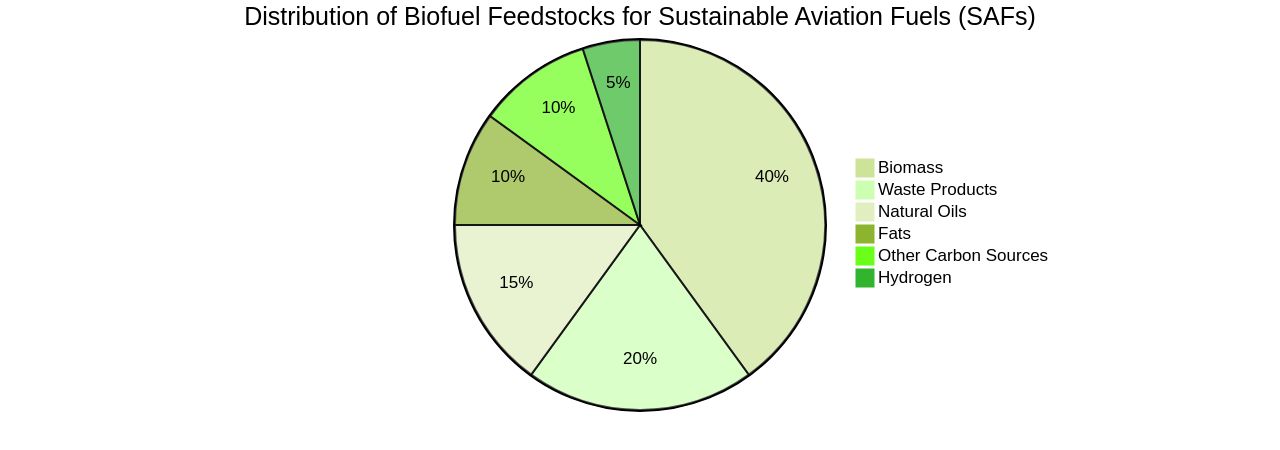
Biofuels for Aviation – Testing and Certification Process
Aviation, a significant contributor to global carbon emissions, is undergoing a paradigm shift towards sustainable aviation fuel (SAF). This transition is driven not only by stringent safety and performance regulations but also by the urgency to decarbonize the industry. Bio-based aromatic production advancements have facilitated the operation of aircraft on higher SAF volumes, even up to 100%.
This achievement has been actualized by airlines such as United Airlines, Emirates Airline, Gulfstream, Bell Textron, and Virgin Atlantic, who recently completed the first 100% SAF trans-Atlantic crossing. The advantage of SAF is its 'drop-in' nature, requiring no significant alterations to current aircraft, airports, or fueling infrastructure. However, the challenge lies in augmenting SAF production to meet global demand, given the strict specifications for jet fuel quality and composition.
The sustainability aspect of SAF is equally important. While some SAFs may contribute to pollution or deforestation, others can be derived from diverse sources like used cooking oil or forestry residues. Synthetic e-fuels, produced from renewable electricity, water, and carbon dioxide, are also a promising option.
The challenge is to promote the right solutions for cleaner fuel production, a feat that, if accomplished, will mark a significant scientific and policy victory of the 21st century. The sustainability criteria, costs, and carbon intensities of different SAF types must also be considered. This will guide stakeholders in making informed decisions and contribute to a cleaner, greener aviation industry.
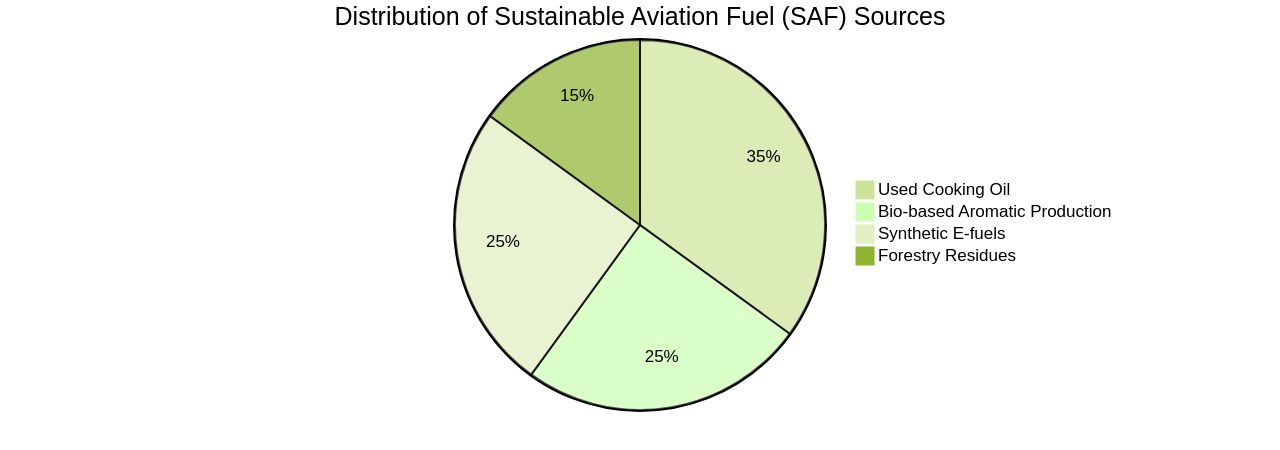
Economic Viability of Biofuels for Aviation
The viability of adopting biofuels in the aviation sector hinges on the economic feasibility, which is influenced by the cost of feedstock, technology expenditure, and the potential for economies of scale. Despite the challenges posed by high demand and limited global production, the aviation industry, one of the fastest-growing sectors, is in urgent need of Sustainable Aviation Fuels (SAFs).
SAFs, derived from various feedstocks, are already in use. However, the competition for these feedstocks and the need for economically efficient production scales are still significant hurdles.
Despite these obstacles, the use of SAFs is growing, particularly in Europe, the UK, and the USA, largely driven by recent EU legislation mandating airlines to significantly augment their use of clean fuels by 2025. Nonetheless, the sustainability of these fuels raises concerns due to the enormous volume of biomass needed to fulfill the aviation industry's fuel requirements.
For instance, biofuel production for commercial jets using sugar cane would require a landmass equivalent to multiple US states. Addressing these challenges, Universal Fuel Technologies' Flexiforming solution could provide a viable pathway. This solution enables operators to set their decarbonization pace and can be implemented in an idle hydrotreater or reformer, thereby reducing capital expenditure and carbon intensity. The objective is to identify an optimal flexiforming application based on the operator's feeds, target products, and existing facilities, offering a potential solution to the large-scale SAF production challenges. Moreover, Universal Fuel Technologies, through its Unifuel.tech platform, offers personalized support and responds to inquiries within 24 hours, ensuring operators are well-equipped to leverage this technology effectively.
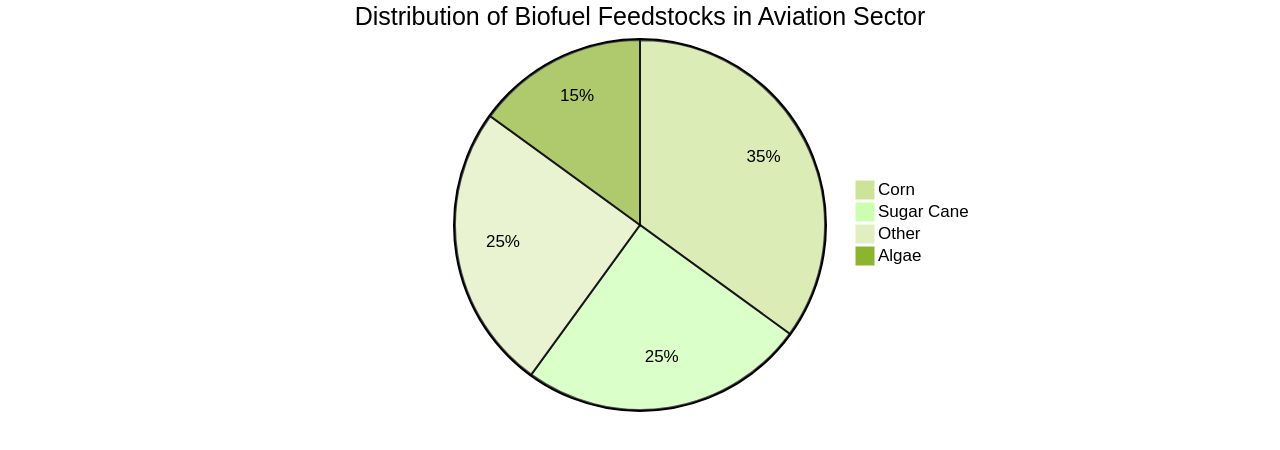
Feedstock for Biofuels in Aviation
The future of the aviation sector is becoming more and more connected to the advancement of sustainable aviation fuels (SAF), also known as biofuels for aviation, which play a crucial role in mitigating greenhouse gas emissions. Biofuel aviation is derived from a variety of sources including biomass, waste products, natural oils and fats, and other carbon sources.
Despite the industry's commitment to high SAF volume targets and aggressive adoption timelines, the current global production of biofuel aviation is limited, indicating a future where demand for biofuel aviation in the aviation industry could surpass supply. Key challenges that need to be addressed include affordability, sustainability, and competition for feedstocks and economically efficient scales of production.
Certain countries, such as Australia, are well-positioned to contribute significantly to the biofuel aviation sector, both as a source of feedstocks and as a producer of sustainable aviation fuel (SAF). The development of new methods for producing bio-based aromatics has enabled the use of larger quantities of biofuel aviation, including 100% biofuel aviation, offering a viable approach to reducing carbon emissions in the aviation industry.
Nonetheless, concerns regarding the accessibility and ethical considerations associated with feedstocks such as animal fat and vegetable oil used in the production of biofuels remain. Although the aviation industry is making progress in using biofuel aviation (SAF) to reduce emissions, the path is filled with technical and logistical hurdles. It's important to remember that the scale of the task ahead, in such an international and capital-intensive industry, requires a concerted industry effort. However, the expected demand-gap for the foreseeable future presents an opportunity for early SAF producers to realize healthy profits.
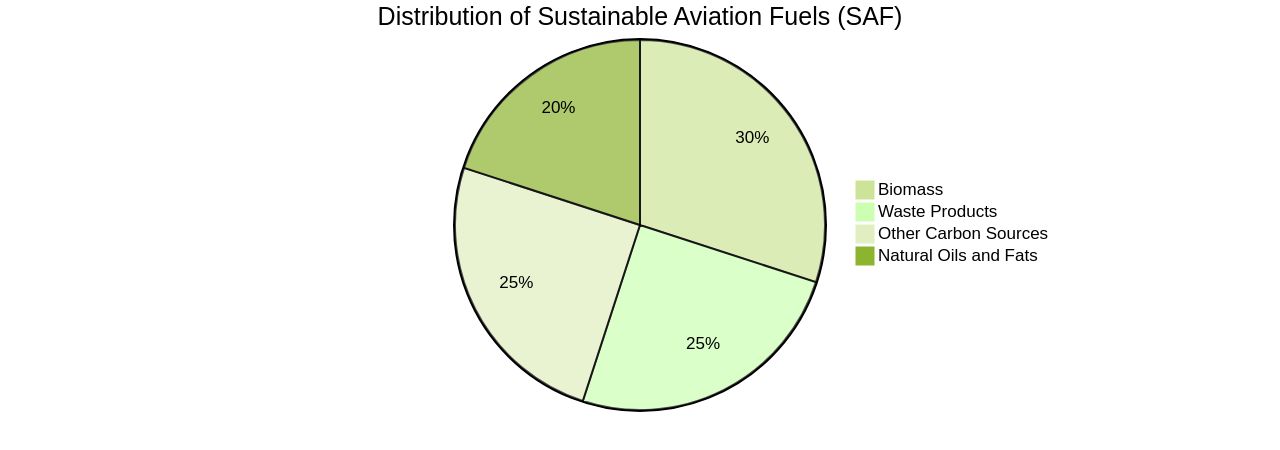
Production Pathways for Biofuels in Aviation
The aviation sector, which contributes to approximately 7% of the total US transportation emissions, is witnessing rapid growth. The imperative to decarbonize is evident, given the 20-30 years lifespan of commercial aircraft.
Biofuels derived from a variety of feedstocks such as biomass, waste materials, and natural oils serve as an encouraging solution. They undergo procedures like hydroprocessing, pyrolysis, and gasification for aviation application.
Electric planes and hydrogen fuel hold potential, but their suitability for long-haul flights is still under scrutiny. Hence, sustainable aviation fuels (SAF) emerge as the most viable current solution.
The adoption of SAF is on the rise worldwide, especially in Europe, the UK, and the US. Nevertheless, issues related to affordability, sustainability, and competition for feedstocks arise due to limited global production and escalating demand.
Research and development persist in enhancing the efficiency and scalability of biofuel production. A notable advancement is the development of a process to produce bio-based aromatics, a key component of SAF.
This has paved the way for airlines to test flights using 100% SAF, marking a significant milestone in the journey towards aviation decarbonization. However, technical and logistical challenges such as strict fuel specifications and management of global fueling infrastructure remain.
Australia, a prominent biofuel feedstock producer, can assume a critical role in this global endeavor. Given its emerging hydrogen economy, Australia can provide clean hydrogen, an essential element in various SAF production pathways. Despite the hurdles, the potential of biofuels in aviation is indisputable. As the sector aims to lower emissions, biofuels are set to play an increasingly crucial role in the future of aviation. In this context, technologies such as 'Flexiforming' offered by Unifuel.tech, a subsidiary of Universal Fuel Technologies, presents a promising solution. This technology, which can be implemented in an idle hydrotreater or reformer, allows operators to determine their decarbonization pace while reducing capital expenditure and carbon intensity. Unifuel.tech actively seeks information about operator's feeds, target products, and existing facilities to find the optimal application for Flexiforming, promising to respond to inquiries within a day.
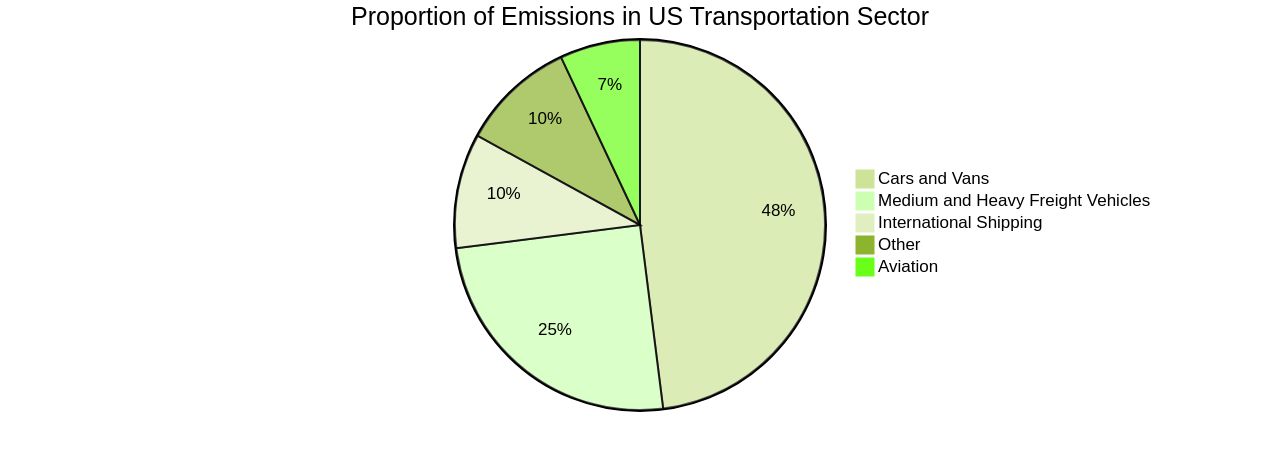
Storage and Transportation of Biofuels in Aviation
The integration of biofuels into aviation necessitates strategic planning, particularly concerning storage, handling, and distribution logistics, due to biofuels' distinct properties. For example, the fuel must sustain extreme cold temperatures at high altitudes without thickening or freezing.
The anticipated surge in biofuel demand might exceed supply, resulting in intense competition, especially in sectors like aviation and road transport. Sustainable aviation fuel (SAF) has emerged as a significant solution for reducing emissions in the aviation industry against this backdrop.
Despite the costs and challenges of decarbonization, SAF provides a viable solution in the short term. Projections suggest a considerable rise in sustainable biofuel production from advanced biomass sources, with many projects expected to be operational by 2026.
Nonetheless, the production might still be insufficient for a significant impact on decarbonization efforts. For instance, achieving full decarbonization by 2050 using biofuels would require an estimated 250 Mtoe annually.
Despite these challenges, the aviation industry is steadfast in its commitment to reduce emissions. With limited global production, the demand for SAF is expected to exceed supply.
However, opportunities exist for countries like Australia to contribute significantly as feedstock sources and SAF producers. To address these challenges, Unifuel.tech offers Flexiforming technology, enabling operators to choose the pace of their decarbonization. This technology can be utilized in an idle hydrotreater or reformer, reducing capital expenditure and carbon intensity. Unifuel. Tech is committed to responding to inquiries within 24 hours and gathers information about feeds, target products, and existing facilities to find an optimal application for Flexiforming. Overall, while integrating biofuels into aviation poses challenges, it also presents opportunities for significant emissions reduction, paving the way for a more sustainable future in the aviation industry.
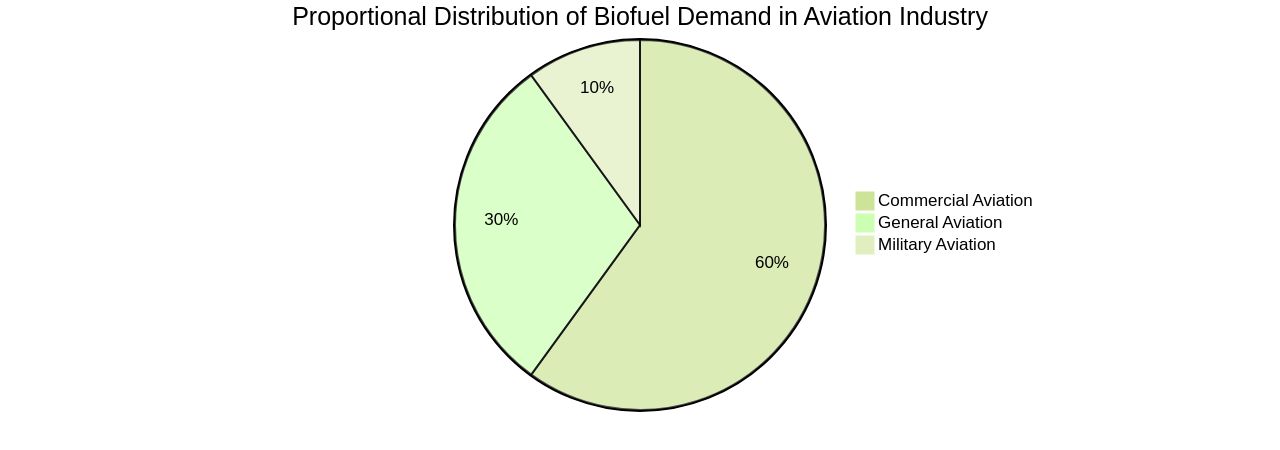
Environmental and Economic Analysis of Biofuels in Aviation
Biofuels, specifically sustainable aviation fuel (SAF), hold promise for decarbonizing the aviation industry, despite contributing to 2.5% of global carbon emissions. Electrofuel, a type of SAF, could significantly decrease this percentage, offering an immediate solution compared to electric or hydrogen-fueled aircraft, which require more time for commercial deployment.
Transitioning to SAFs, however, carries its own set of challenges. Fuel quality, cost, and the rising demands of air travel and freight transport are considerable obstacles.
Adding to this is the industry's commitment to net-zero carbon dioxide emissions by 2050, which amplifies the urgency. Nevertheless, the economic benefits of SAFs are substantial.
They can create jobs, enhance energy security, and reduce reliance on fossil fuels, particularly beneficial for regions like the Great Lakes and Rocky Mountains in the U.S. However, the carbon offsetting potential of SAFs is a contentious issue.
Ideally, the carbon emissions from burning SAFs would be balanced by the carbon captured during their production. Yet this balance is often upset due to the energy required for their production.
Additionally, the feedstocks used for manufacturing Safe can have their own environmental implications. Enter solutions such as flexiforming, a technology offered by Unifuel.tech. This technology can be deployed in an idle hydrotreater or reformer, which not only reduces capital expenditure but also carbon intensity. This allows operators to control their decarbonization pace. Their customer service, responsive within 24 hours, can tailor the application of flexiforming based on operators' feeds, target products, and existing facilities. Universal Fuel Technologies, the rights owner of Unifuel.tech, offers this technology under their terms of use. With continued research, investment, and technologies like flexiforming, biofuels in aviation could play a significant role in mitigating climate change and fostering sustainability.
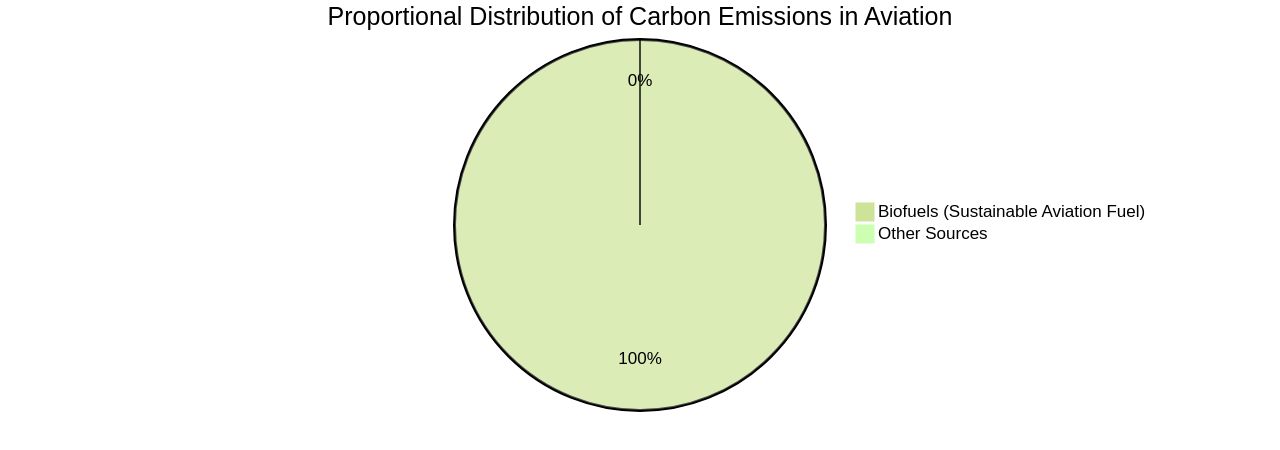
Policy Initiatives for Biofuels in Aviation
The aviation sector, a significant contributor to global CO2 emissions, has the daunting task of achieving carbon neutrality. Sustainable Aviation Fuels (SAFs) are the primary instruments for this, even though they are still in their early technological stages and are expensive.
The industry's dependence on SAFs is heightened due to the unavailability of electrification or alternative fuels for long-haul segments in the foreseeable future. SAFs can be produced from a range of feedstocks, including biomass, waste products, and other carbon sources.
Despite a recent uptick in SAF usage in regions such as Europe, the UK, and the USA, the limited worldwide production could lead to a demand-supply gap, sparking concerns about affordability and sustainability. Regions such as the Great Lakes and the Rocky Mountains in the USA are emerging as potential SAF users.
Australia, with its significant potential for biofuel production, could also become an essential player. However, ensuring the true sustainability of SAFs is a challenge, as not all SAFs reduce pollution significantly or may even contribute to deforestation.
In this context, innovations like Unifuel.tech's flexiforming technology, owned by Universal Fuel Technologies, offer a promising path. This technology, which can be integrated into an idle hydrotreater or reformer, enables operators to control their decarbonization pace, potentially reducing capital expenditure and carbon intensity. It signifies a step forward in the quest for climate-friendly alternative fuels. While SAFs are central to the aviation industry's net-zero plans, they constituted less than 0.2% of the global jet fuel supply in 2022, highlighting the urgent need for progress. The main challenge is expanding the supply, as commercially available Safe are primarily based on fats, oils, and greases. These resources alone cannot meet global jet fuel demand, underlining the need for a diversified feedstock portfolio.
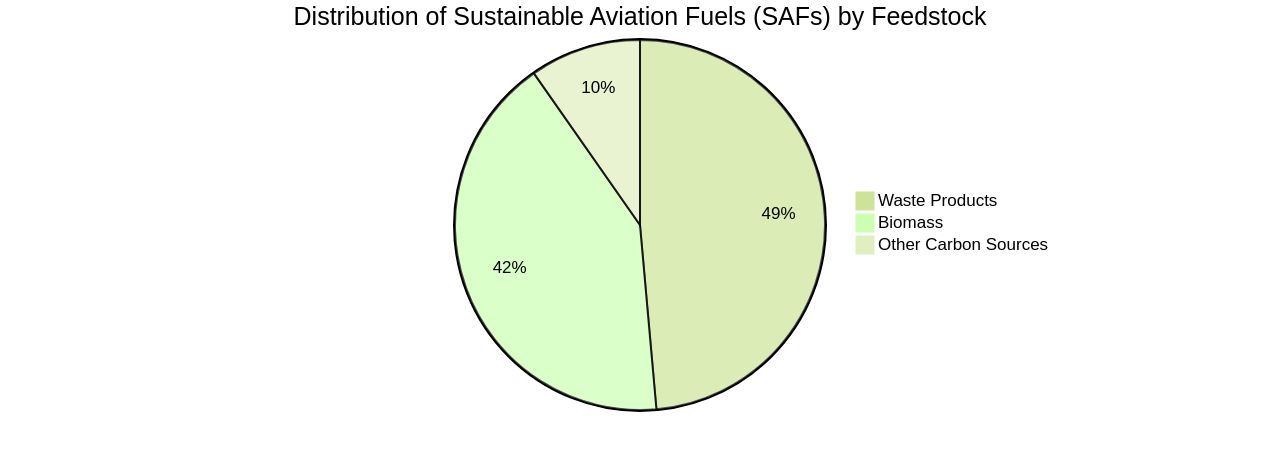
Case Studies of Biofuel-Powered Flights
Biofuels are playing a pivotal role in the eco-revolution, with the aviation industry at the forefront. A case in point is Virgin Atlantic's groundbreaking flight from London Heathrow to JFK in New York. This demonstration flight, powered by alternative fuels, was not a commercial venture but a significant proof-of-concept, a step towards a more sustainable future in aviation.
The journey was powered by biofuel aviation, which can be derived from various sources such as crops, household waste, and cooking oils. However, despite this promising development, challenges such as ensuring a consistent fuel supply and meeting emissions targets persist. The International Civil Aviation Organization (ICAO) has launched the Carbon Offsetting and Reduction Scheme for International Aviation (CORSIA), with the objective of halving CO2 emissions from the aviation sector by 2050.
Biofuel aviation, which can yield significant greenhouse gas (GHG) savings, is being advocated as an alternative to traditional fossil fuels in order to achieve this target. In pursuit of these goals, Virgin Atlantic has been actively reducing its environmental footprint over the past decade and a half. They operate one of the youngest and most fuel-efficient fleets in the skies, which has helped them reduce their absolute carbon emissions by 35% in the last decade.
They aim to conduct the first 100% SAF transatlantic flight in 2023, demonstrating the viability of SAF as a substitute for traditional fuel in existing infrastructure. The adoption of sustainable fuel solutions like SAF has become increasingly imperative due to the aviation industry's significant contribution to transportation emissions. As the industry continues to evolve, SAF has emerged as a key solution, with the potential to drastically reduce greenhouse gas emissions.
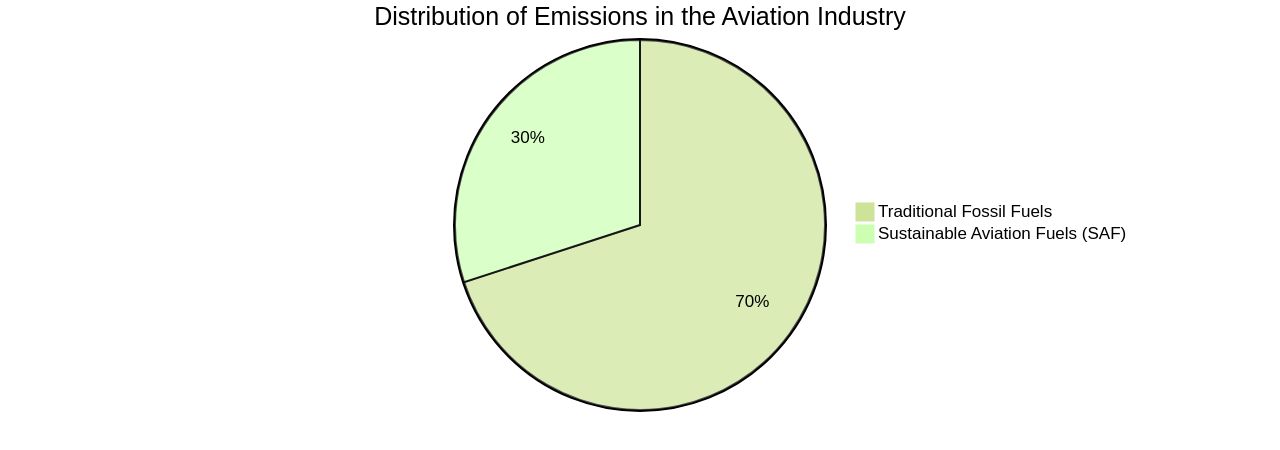
Challenges and Opportunities for Biofuels in Aviation
Exploring the integration of biofuels into aviation, we encounter the obstacles of large-scale adoption, including high production costs and limited feedstock availability. The need for supportive policies is clear, just as the potential of biofuels to mitigate carbon emissions, fortify energy security, and stimulate technological advancements is undeniable. Despite their ostensible simplicity, biofuels warrant meticulous evaluation to ascertain their compatibility with onboard equipment, mitigating potential damage.
The transportation sector was responsible for nearly a quarter of global carbon dioxide emissions in 2021, with aviation playing a significant role. Present-day batteries fail to rival liquid hydrocarbons derived from fossil fuels in energy per unit weight, a hurdle for aviation. Uppsala University's research uncovers the potential of sustainable synthetic aviation fuel produced by genetically modified cyanobacteria, which utilize sunlight as an energy source.
However, the magnitude of biomass needed to fuel an industry as energy-demanding as aviation requires consideration. The aviation industry is responsible for about 3.5% of greenhouse gas emissions, comparable to one of the world's largest emitters, Japan. While Sustainable Aviation Fuel (SAF) is a significant stride towards reducing emissions in aviation, the challenge lies in ensuring the sustainability of all Safe, as some can contribute to pollution and even deforestation.
Biofuels offer a promising solution to decarbonize aviation, albeit with associated challenges. To fully exploit the potential of biofuels in aviation, ongoing research and development, cross-sector cooperation, and supportive policies are essential. Universal Fuel Technologies' subsidiary, Unifuel.tech, brings forth flexiforming, a technology enabling operators to control their decarbonization speed.
This technology can be employed in an idle hydrotreater or reformer, thereby decreasing capital expenditure and carbon intensity. Unifuel. Tech is committed to prompt responses, typically reverting to inquiries within 24 hours to discern the optimal application for flexi forming.
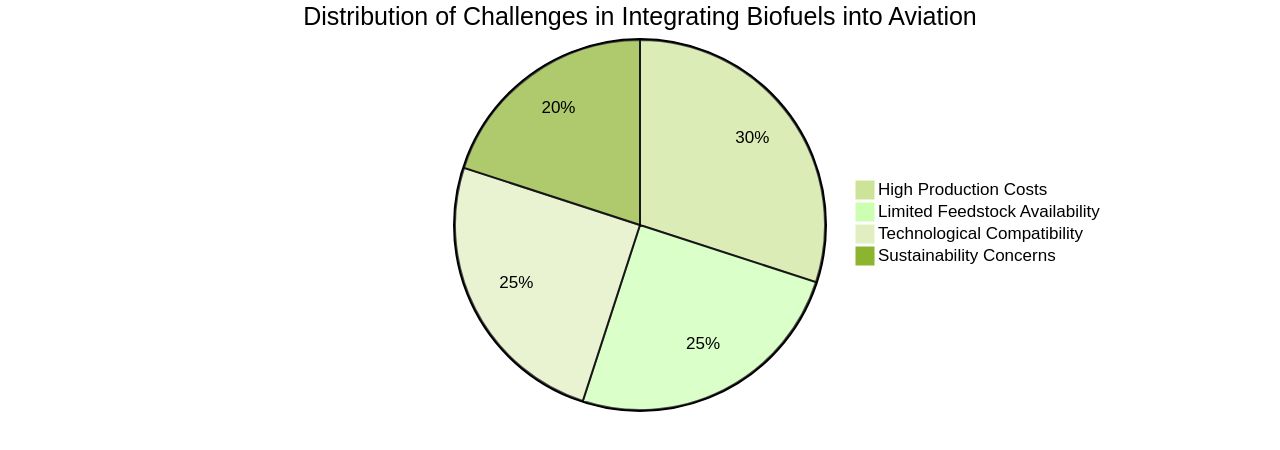
Conclusion
In conclusion, integrating biofuels into aviation presents complex challenges due to the stringent performance requirements of aircraft engines and infrastructure. However, bio-based aromatics have expanded the potential applications of Sustainable Aviation Fuel (SAF), allowing for flights to be powered solely by SAF.
While synthetic fuels and technologies like hydrogen show promise, SAF's compatibility with existing infrastructure makes it the most viable solution for the aviation sector. Despite hurdles such as high costs and limited feedstock availability, the potential of SAF in reducing carbon emissions in the aviation industry is indisputable.
The industry's commitment to achieving carbon neutrality by 2050 underscores the need for immediate action. Unifuel.tech's Flexiforming technology offers a promising solution by enabling operators to manage their decarbonization pace.
This technology can be implemented in existing facilities, reducing both capital expenditure and carbon intensity. Unifuel.tech provides personalized support and a prompt response to inquiries regarding the optimal application of Flexiforming. In conclusion, while there are technical and logistical challenges in integrating biofuels into aviation, they present significant opportunities for emissions reduction and a more sustainable future in the industry. With continued research, investment, and technologies like Flexiforming, biofuels have the potential to play a crucial role in mitigating climate change in aviation.
Contact Unifuel.tech today to learn how Flexiforming can revolutionize your decarbonization efforts.




